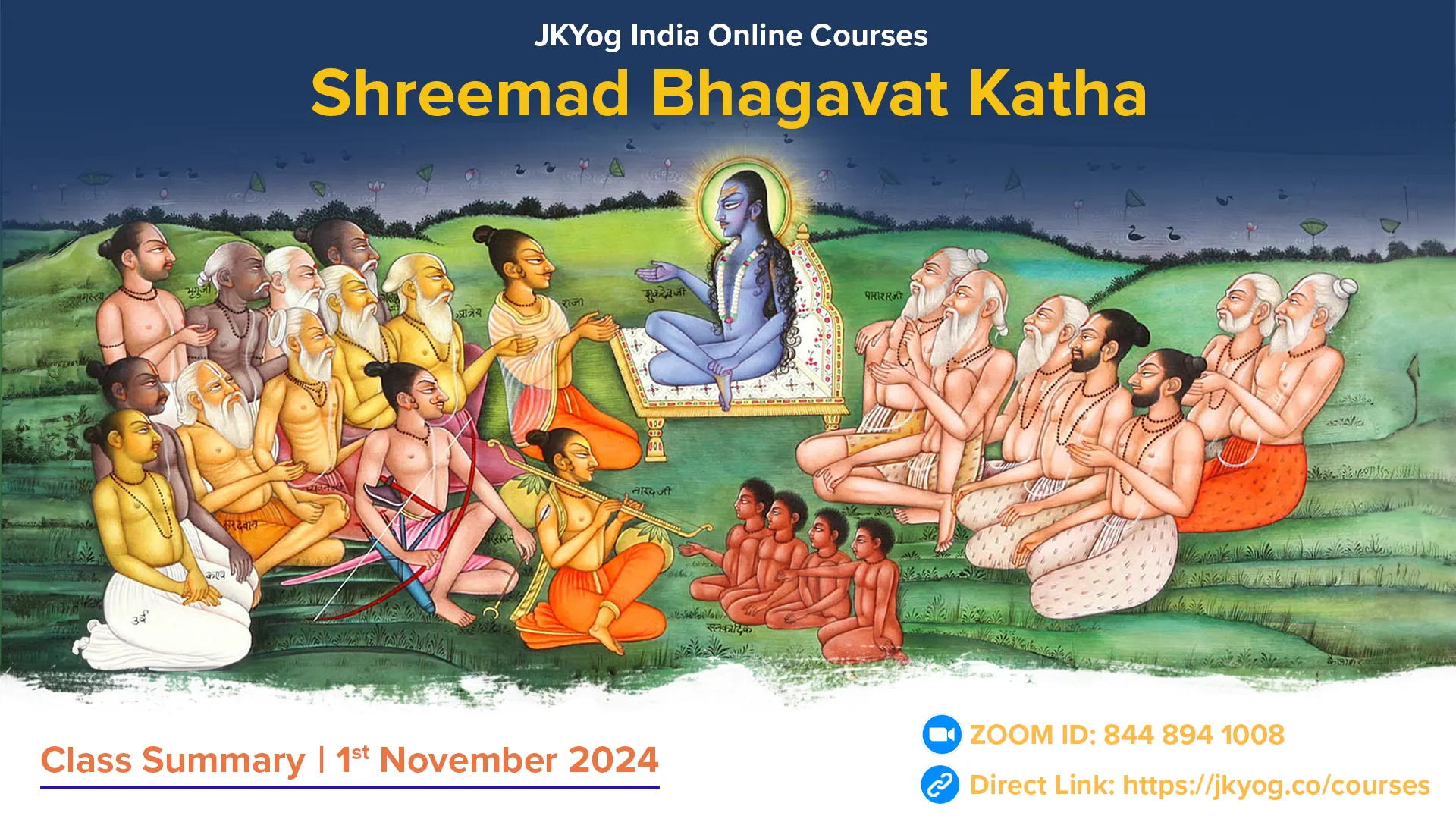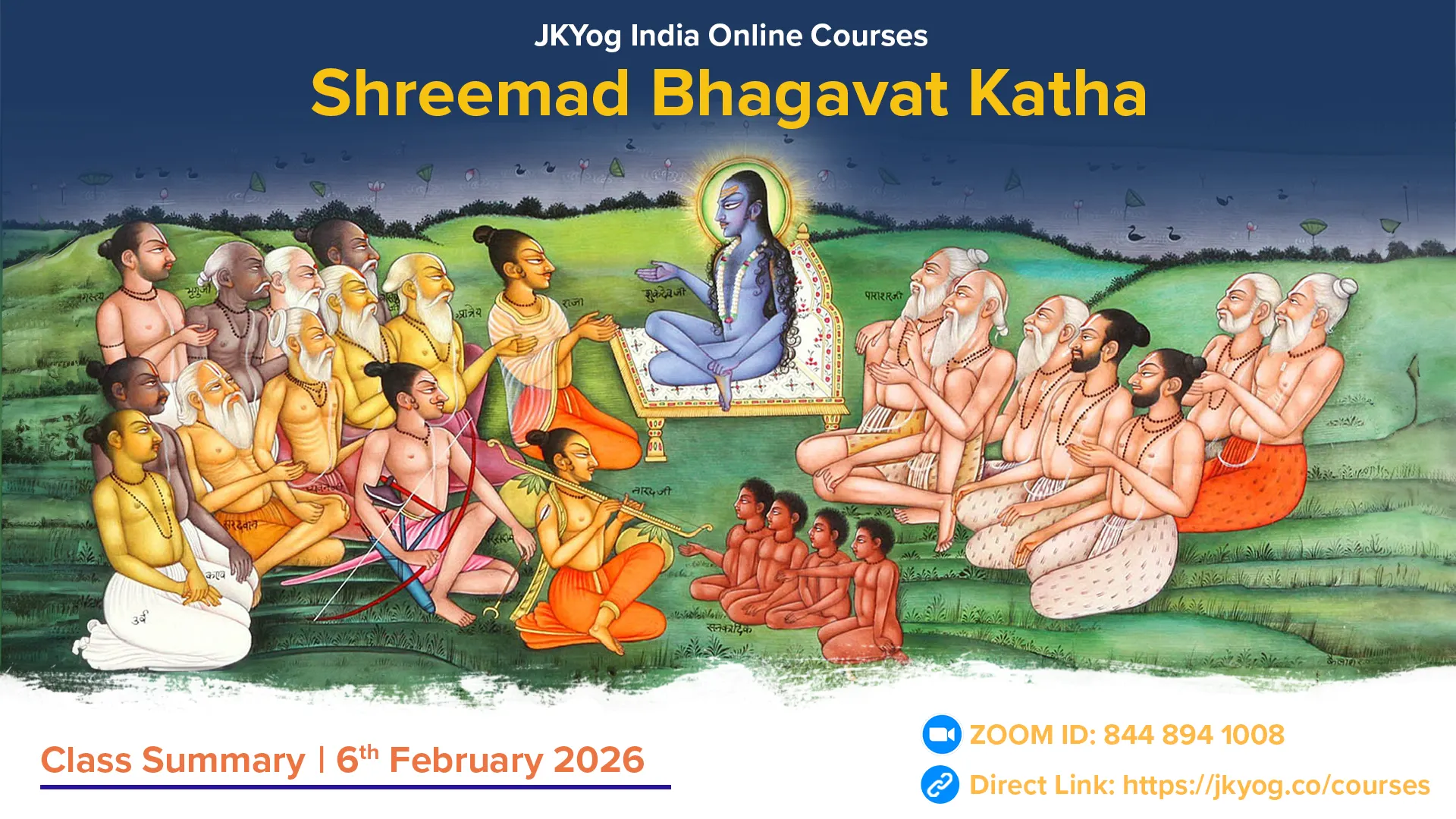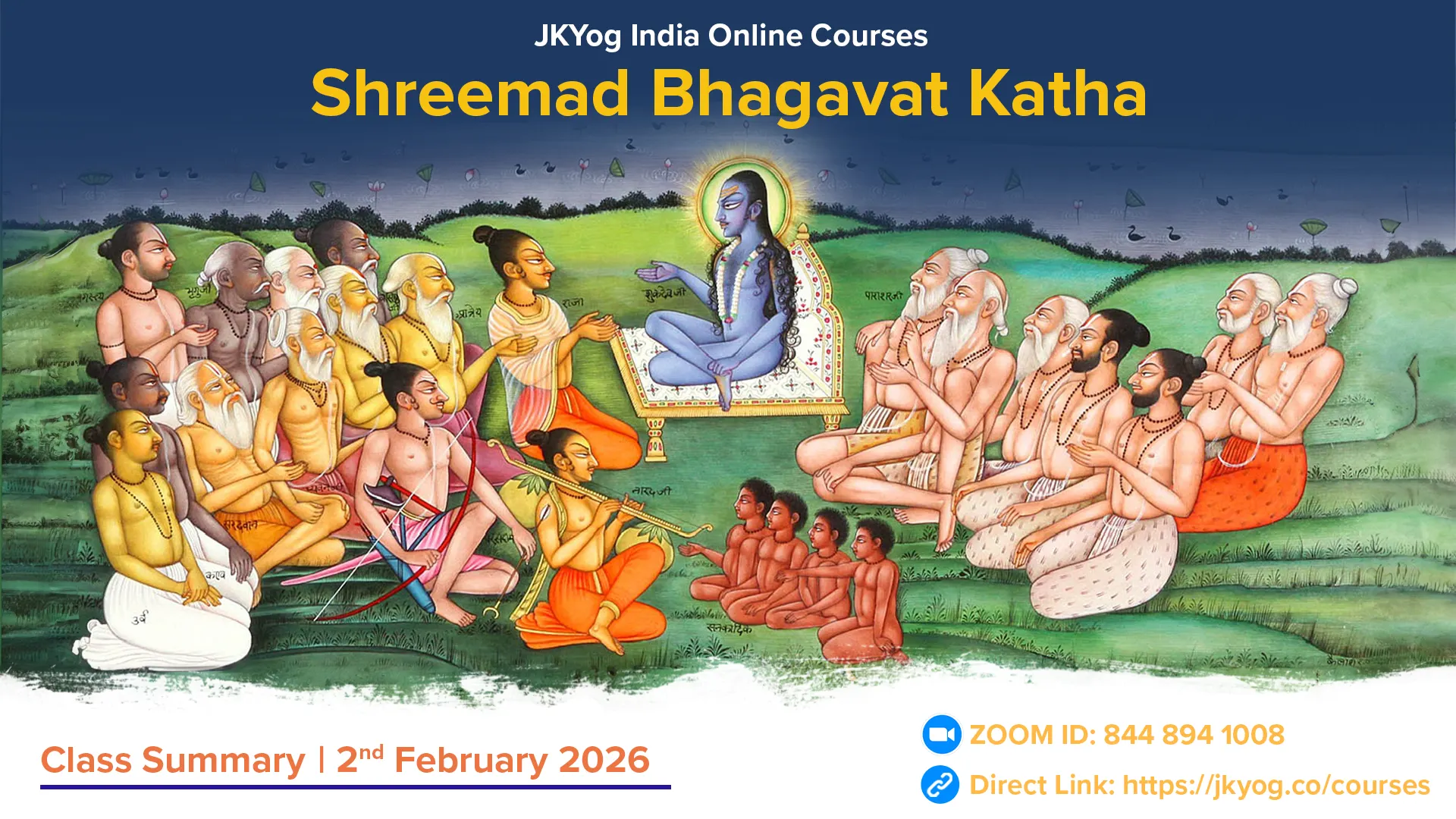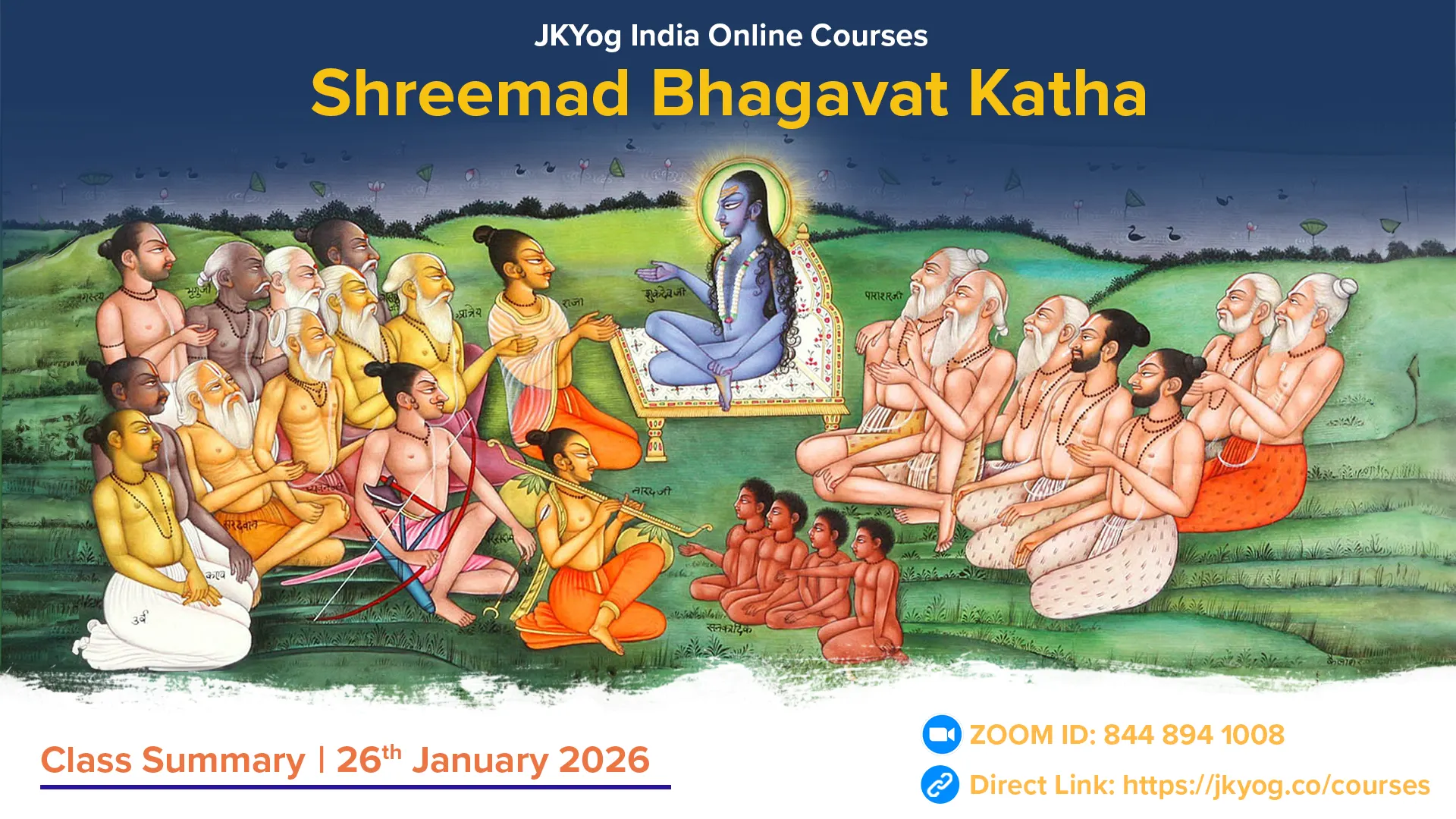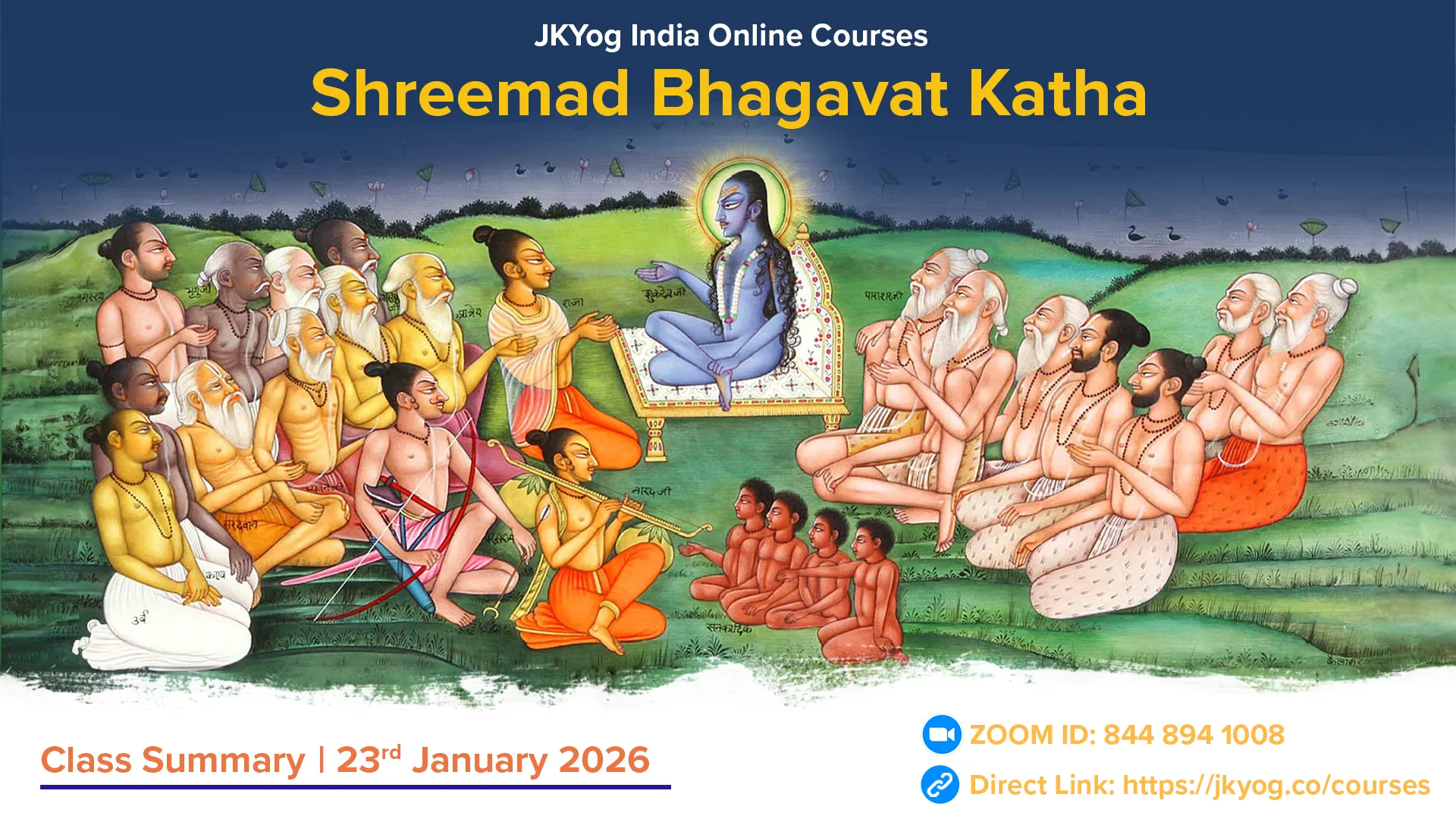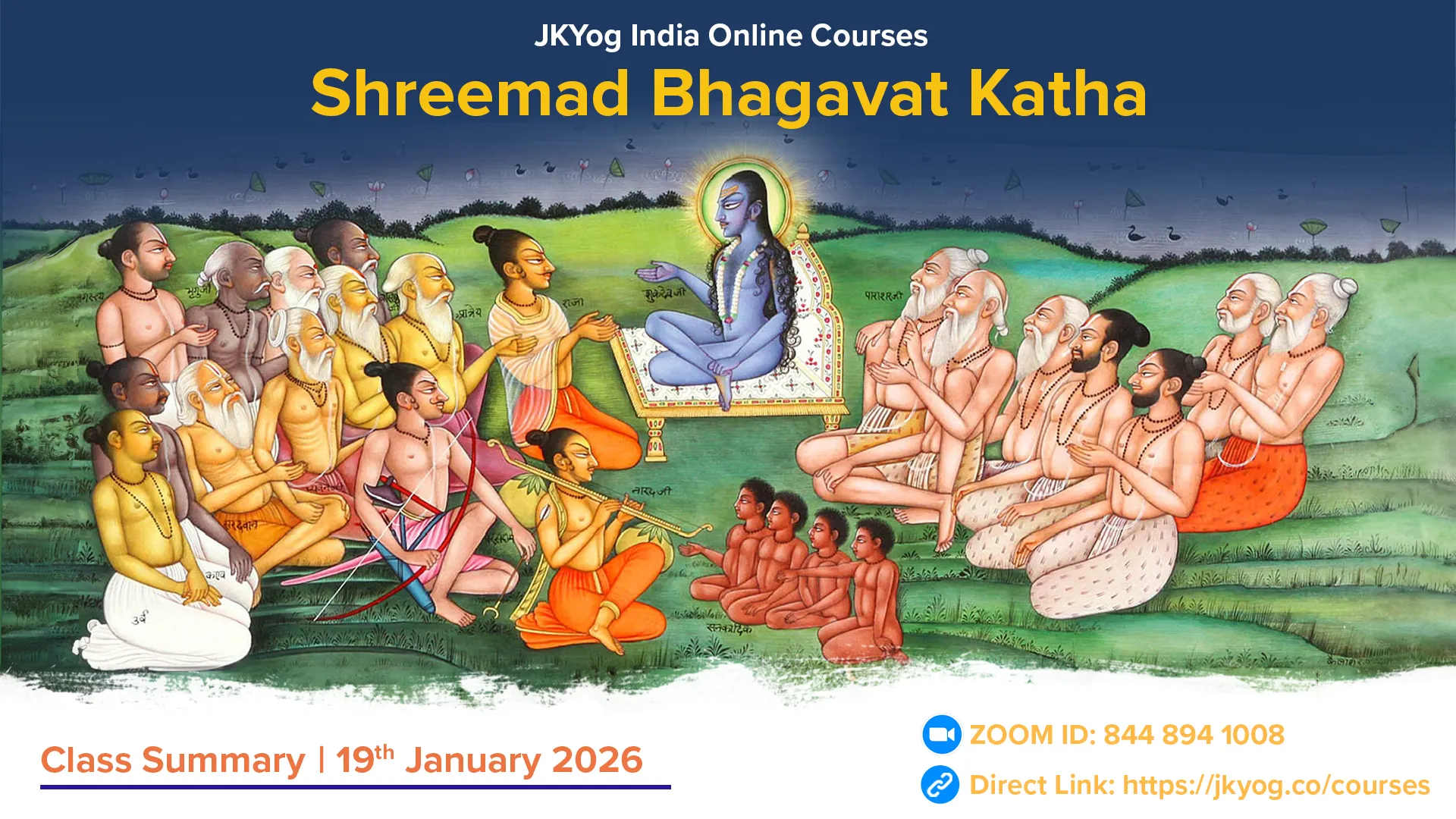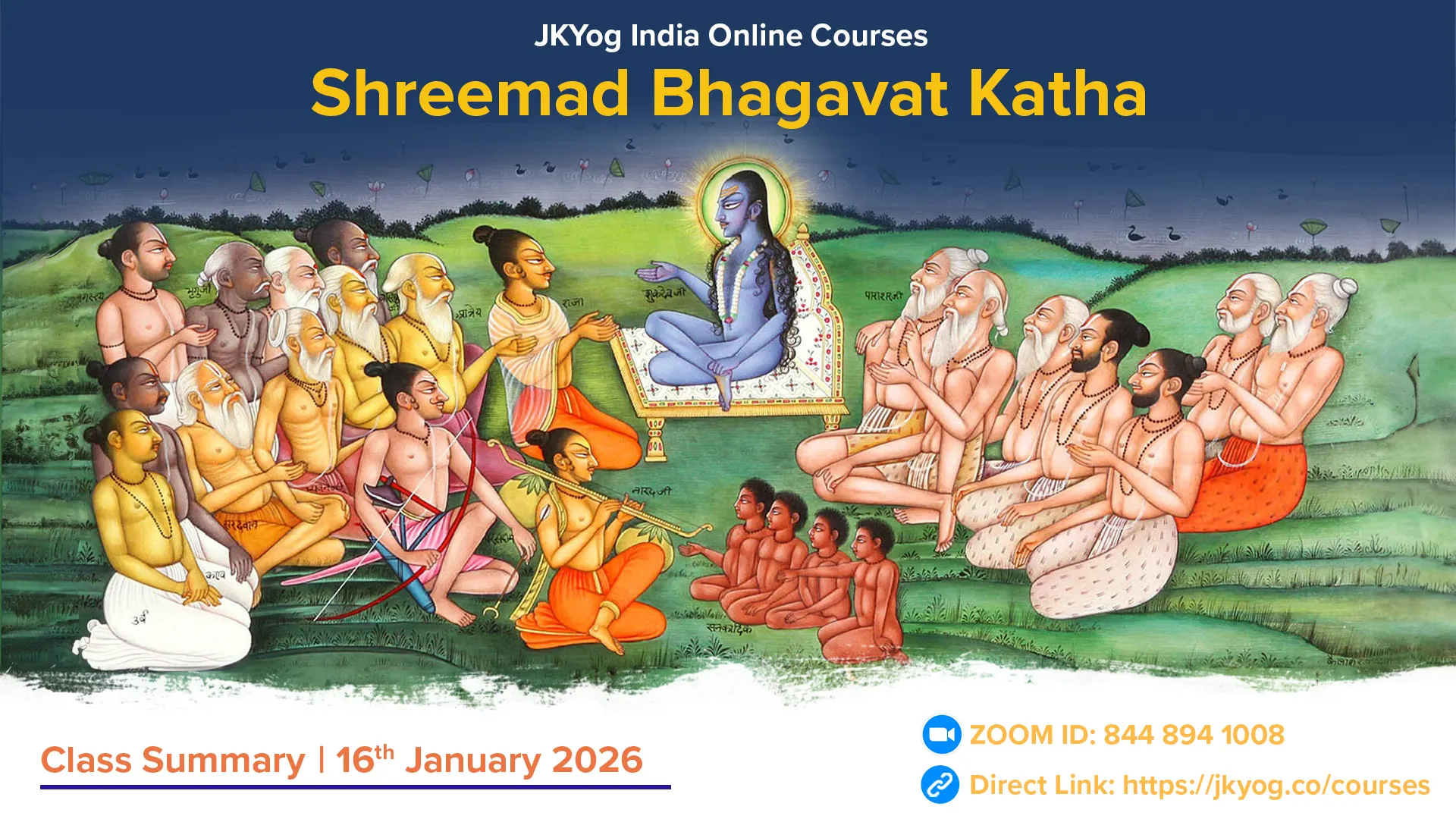Shreemad Bhagavat Mahapuran- Canto: 4, Chapters: 10 to 13
Dhruv marries Bhrami, the daughter of Prajapati Shishumar, and they have two sons, Kalpa and Vatsar. Dhruv’s second wife, Ilā, the daughter of the wind god, gives birth to a son, Utkal, and a daughter. Dhruv’s brother Uttam, however, remains unmarried, and one day, while hunting, he is killed by a powerful yaksha in the Himalayas. His mother also passes away along with him.
Hearing the news of his brother’s death, an enraged Dhruv sets out to the land of the yakshas and attacks Alakapuri. The yakshas are terrified by the sound of his conch, but their warriors prepare to battle him. Dhruv, being exceptionally powerful and skilled in archery, shoots three arrows at once at the yakshas, making them certain of their defeat. Awed by Dhruv’s might, they begin to praise him. However, soon, the yakshas, angered by his prowess, launch a volley of six arrows each at him.
Dhruv’s battle with Yakshas
The yakshas’ massive army of 130,000 warriors rains a barrage of weapons on Dhruv and his chariot, completely covering him. Seeing this, the sages observing from the sky express concern, fearing that Dhruv might succumb to the overwhelming army of yakshas. Just then, Dhruv’s chariot emerges from the clouds, shining like the sun, and he unleashes a storm of powerful arrows, destroying the yakshas’ weapons. His sharp arrows pierce through their armour and bodies like Indra’s thunderbolt cleaving mountains.
The battlefield becomes a spectacle of severed yaksha heads, glorifying Dhruv’s might. Those yakshas who manage to survive flee the field. Witnessing no remaining enemies with weapons before him, Dhruv feels an urge to see Alakapuri. However, staying cautious, he refrains from entering and tells his charioteer that one can never predict the deceptive powers of these asuras.
Suddenly, a terrible storm arises with a thunderous roar. Dust clouds envelop the directions, and thick clouds gather in the sky. Amid lightning and thunder, the clouds start raining blood, phlegm, pus, and filth. Headless bodies fall from the sky. Dhruv sees snakes, enraged elephants, lions, and tigers charging toward him, while enormous waves from the ocean rise, threatening to submerge the earth.
The asuras create terrifying illusions with their magical powers, capable of unsettling the faint-hearted. Observing this, sages arrive and begin offering blessings for Dhruv’s success. They pray that Bhagwan Narayan, the protector of devotees, destroy Dhruv’s enemies. They remind that merely chanting or hearing Narayan’s name frees one from the fear of death.
Hearing the sages’ words, Dhruv performed achman (a purifying ritual) and mounted the Narayanastra, created by Shree Narayan, onto his bow. As soon as the arrow was released, the myriad illusions created by the yakshas were instantly destroyed. The arrow flew with a terrifying whistling sound, piercing through the enemy ranks and annihilating them. Dhruv’s sharp arrows caused immense panic among the yakshas. Enraged, many yakshas picked up their weapons and charged at Dhruv. However, Dhruv, with his arrows, severed their arms, thighs, shoulders, and torsos, sending them to Satyalok—a realm where ascetic sages reach through intense penance, piercing even the solar system.
At this point, Dhruv’s grandfather, Swayambhuva Manu, noticed that Dhruv, standing on his majestic chariot, was slaying many innocent yakshas. Compassion welled up in him, and he arrived at the battlefield accompanied by several sages. Addressing his grandson, he began to counsel him:
“Dear Dhruv, control your anger, for it is the gateway to hell and is condemned by virtuous individuals. I understand your love for your brother, but in your grief over his death, you have punished countless innocent yakshas for the crime of one. This act is not in accordance with the dignity of our lineage.
Sages dedicate themselves to the service of Bhagwan and tread the path of non-violence. Realising the transient nature of the body, they abstain from violence. Your devotion to Bhagwan has been evident since childhood, and Shree Hari Himself regards you as a dear devotee. Devotees across the world revere you. To please the Supreme, one must practice compassion, tolerance, and friendship towards all living beings. This behaviour liberates one from the bindings of material qualities and actions, leading to the ultimate bliss of Brahman.
Dhruv, this universe is composed of the five elements and is influenced by Shree Hari’s Maya (illusory power). Though the Supreme Being is beyond attributes and actions, this world operates under His will, just as iron is drawn to a magnet. Through the flow of time, His energy manifests in creation, sustenance, and dissolution. Thus, He creates the world without being its creator and destroys it without being its destroyer. His leela (divine play) is beyond comprehension.
This Supreme Being, who manifests as time, is eternal. He gives birth to this universe and ends life as time itself. All living beings are bound by the cycle of time, which Bhagwan determines according to their actions. He manages both life and death, and His will is beyond human understanding. He is the foundation of this universe and the cause of its existence, yet He remains beyond human intellect.
The attendants of Kuber are not responsible for your brother’s death, for the true cause of birth and death is Bhagwan. He alone creates, sustains, and destroys the universe, but being free from ego, He remains unattached to these qualities and actions. He is the inner soul, controller, and protector of all beings. Through His Maya, He creates, nurtures, and annihilates all living beings.
Just as an ox with a nose ring pulls its owner’s burden, even great creators like Brahma are bound by His laws of name and form and follow His command. For non-devotees, He appears as death, but for devotees, He is nectar, the ultimate refuge of all. Dear Dhruv, surrender yourself completely to that Supreme Being in every possible way.”
Manuji reminds Dhruv, "Son, when you were just five years old, hurt by the harsh words of your stepmother, you left your mother’s lap and went to the forest. There, through your intense penance and devotion, you pleased Hrishikesh Shree Hari, who moved by affection, granted you the immortal Dhruvapad, higher than the three worlds. That same Shree Hari loves you dearly. He is the formless, unique, eternal, and ever-liberated Supreme Being.
Perceive Him within your heart through spiritual insight. Just as medicine heals disease, focus on the guidance I have given you and calm your anger. Anger is a great obstacle on the path to our welfare. May the Lord bless you. Everyone fears an angry person. Therefore, wise individuals who aspire neither to frighten others nor to live in fear themselves never succumb to anger.
You sought revenge for your brother’s death by killing so many yakshas, but unknowingly, you have offended Kuber, a friend of Shivji. Son, before the power of great being’s brings disgrace to our lineage, humbly seek Kubera’s forgiveness immediately." With these words, Manuji imparted his teachings to his grandson Dhruv. Dhruv then bowed to him. After that, Manuji returned to his abode along with the sages.
Shree Maitreya says, "Vidurji! When Kuber learns that Dhruv has calmed his anger and stopped slaying the yakshas, he arrives there. Seeing him, Dhruv folds his hands and stands respectfully. Kuber then says, 'Dhruv, you have renounced enmity following the teachings of your grandfather, and I am pleased with you. In reality, you did not kill the yakshas, nor did the Yakshas kill your brother. The birth and destruction of all beings are governed solely by time (Kaal). The false notions of 'I' and 'you' arise from ignorance, where one mistakenly identifies the body as the soul, leading to bondage and suffering.
Now you may go; may Bhagwan bless you. To free yourself from the bonds of the world, view all beings with equality and devote yourself to the worship of Shree Hari. He is the one who severs worldly attachments. His lotus feet are worthy of devotion by all. You dwell near Bhagwan Narayan’s lotus feet, and hence, you are deserving of a boon. Ask me freely and without hesitation for any boon you desire.'
When yaksharaj Kuber insists, Dhruv requests only this: 'May I have unbroken remembrance of Shree Hari, by which one easily crosses the difficult ocean of worldly existence.' Pleased, Kuber grants him unwavering devotion to Bhagwan and vanishes in Dhruv’s presence.
Dhruv’s Ascent to Vishnulok
After that, Dhruv returns to his capital. Residing there, he worships Bhagwan Yagyapurush through grand yajnas (sacrificial rituals) with generous offerings. Freeing himself from all worldly designations, Dhruv develops profound devotion to Shree Achyut, the soul of all. He perceives the all-pervading presence of Shree Hari both within himself and in all living beings. Dhruv is virtuous, a devotee of brahmins, compassionate towards the destitute, and a protector of Dharma and societal values. His subjects regard him as their own father. Thus, enjoying various divine pleasures and eradicating sins through yajnas and selfless deeds, Dhruv rules the earth for thirty-six thousand years. In the end, he entrusts the throne to his son, Utkarsh, and renounces worldly duties.
Dhruvji, recognising the entire visible world as a dream created by ignorance, renounces it and proceeds to Badrikashram. There, he withdraws his mind from external objects and focuses it on Bhagwan’s cosmic form (Virat Swaroop). Immersed in constant devotion to Shree Hari, tears of bliss flow from his eyes, melting his heart and causing his body to tremble with divine ecstasy. As his identification with the body dissolves, he transcends even the notion of “I am Dhruv.”
At this moment, Dhruvji sees a magnificent celestial chariot descending from the sky. It is occupied by two exalted attendants with four arms, beautiful dusky complexions, youthful appearances, and eyes resembling blooming red lotuses. They are adorned with splendid garments, crowns, garlands, armlets, and exquisite earrings. Recognising them as Bhagwan Vishnu’s divine servants, Dhruvji immediately stands and greets them with folded hands.
The dear attendants of Shree Hari, Sunand and Nand smile and say to Dhruv, “At the tender age of five, you pleased Bhagwan Shree Vishnu through your intense penance. We are servants of that Shree Hari, the wielder of the Saranga bow, and have come to escort you to His divine abode. Through the power of your devotion, you have attained Vishnulok, a realm most difficult to access. Even the supremely wise Saptarishis can only gaze upon it from below. The Sun, Moon, planets, constellations, and stars all orbit around it. Come, reside in that supreme Vishnudham. This celestial chariot has been sent by Bhagwan specifically for you, and you are worthy of ascending it.”
Shree Maitreya narrates that upon hearing these nectar-like words from the attendants, Dhruvji bathes completes his daily rituals, and adorns himself with auspicious ornaments. He pays respects to the sages residing in Badrikashram and seeks their blessings. Then, he worships the divine chariot and offers obeisance to the attendants. Assuming a radiant form akin to molten gold, Dhruvji prepares to board the celestial chariot.
At this moment, he notices that Kaal (personified Death) stands before him. Dhruvji places his foot upon Kaal’s head and ascends the extraordinary chariot. As he does so, celestial drums, mridangas, and dhols resound in the heavens, gandharvas sing melodious praises, and flowers shower down. However, as Dhruvji sits on the chariot, ready to depart for Bhagwan’s abode, he remembers his mother, Suniti. His heart fills with concern, thinking, “How can I leave my dear mother behind and ascend to the rare Vaikunth Dham alone?”
Understanding Dhruv’s thoughts, Nand and Sunand reveal that Devi Suniti is already travelling ahead of him in another celestial chariot. Dhruvji sees the Sun and other celestial bodies along the way. Wherever the chariot passes, devas seated on their own celestial vehicles praise him and shower flowers.
Seated on the divine chariot, Dhruvji transcends the three worlds and ascends beyond the Saptarishi Mandal to the eternal abode of Bhagwan Vishnu. Thus, he attains an unwavering and supreme position. Uttanpad’s son, the devout Dhruvji, now shines above the three worlds like the purest jewel in the crown of creation.
Hearing from Shree Maitreya Muni about Dhruvji ascending to Vishnupad (the abode of Vishnu), Vidurji's heart overflowed with devotion towards Bhagwan Vishnu. He then began questioning Maitreya Muni again. Vidurji asked, "Revered Muni! Who were the Prachetas? Whose sons were they? In whose lineage were they renowned, and where did they perform their yajna?"
Dhruv’s lineage
Shree Maitreya Muni replied, "Vidurji, after Maharaj Dhruv went to the forest, his son Utkal renounced the universal sovereignty and the royal throne. Utkal was calm by nature, unattached, and an equal-minded seer. He saw all beings within himself and himself within all beings. He realised the oneness of Brahman, free from all distinctions, and did not see anything as separate from his soul. To the ignorant, he appeared foolish, blind, deaf, mad, or mute, but in truth, he was none of these. Therefore, the elders and ministers, mistaking him for foolish and mad, appointed his younger brother, Vatsar, as king.
- Vatsar's beloved wife, Swarvithi, gave birth to six sons: Pushparna, Tigmaketu, Ish, Urj, Vasu, and Jay.
- Pushparna had two wives, Prabha and Dosha.
- Three sons were born in Prabha: Pratah (morning), Madhyandin (midday), and Sayan (evening).
- Dosha gave birth to three sons: Pradosh (dusk), Nishith (night), and Vyushth (dawn).
- Vyushth's wife, Pushkarini, bore a son named Sarvateja.
- Sarvateja's wife, Akuti, gave birth to Chakshush, who became the Manu of the Chakshush Manvantar.
- Chakshush Manu and his wife Nadwala had twelve sons: Puru, Kuts, Trit, Dyumn, Satyavan, Rit, Vrat, Agnishtom, Atiratra, Pradyumn, Shibi, and Ulmuk.
- Among them, Ulmuk's wife, Pushkarini, gave birth to six sons: Ang, Sumana, Khyati, Kratu, Angira, and Gaya.
Ang's wife, Sunita, gave birth to a cruel son named Ven, whose wickedness drove Ang to leave the kingdom. Enraged by Ven's tyranny, the sages cursed him. After his death, lawlessness plagued the kingdom, causing great suffering to the people. To remedy this, the sages churned Ven's right arm, and from it emerged Maharaj Prithu, an incarnation of Bhagwan Vishnu and the first sovereign king.
Vidurji then asked, "O revered one, Maharaj Ang was virtuous, saintly, and a devotee of Brahmins. How did he have a son like Ven, whose wickedness forced him to abandon his kingdom? What crime did the ruler Ven commit that the sages cursed him with such a severe punishment?"
Maitreya Muni replied, "Vidurji, once, Rajarshi Ang performed a grand Ashwamedha Yajna. Despite the Vedic Brahmins' invitations, the devas did not come to accept their offerings. The ritviks (priests) explained that while the rituals and mantras were flawless, the absence of the devas indicated a deeper issue. They suggested that the king perform a yajna for progeny, as his childlessness stemmed from a sin in his past life. Following their advice, Maharaj Ang performed the yajna, and from the sacrificial fire emerged a celestial being who gave the king a pot of sacred kheer (milk pudding). Ang gave this kheer to his wife, who soon gave birth to a son, Ven.
Ven, however, inherited the unrighteous tendencies of his maternal lineage (as Sunita was the daughter of Mrityu, the god of death). From a young age, Ven displayed cruelty, killing innocent deer in the forest like a hunter and harming his peers. His presence terrified the people, who would shout, 'Ven is here!' His nature deeply troubled Maharaj Ang, who tried in vain to reform him.
Ang lamented, 'Those without children must have worshipped Bhagwan Hari in their past lives, as they are spared the unbearable pain caused by a wicked son. A son whose deeds tarnish his parents' reputation, burden them with endless worries, and turn their home into a place of suffering is not worth longing for. It is better to have no son than a wicked one, as such a child brings destruction to the family and is a source of misery.'
With these thoughts weighing on his mind, Maharaj Ang could not sleep. Overcome by detachment from worldly life, he left his palace unnoticed in the middle of the night, abandoning all attachments. When the people learned of his departure, they were stricken with grief. The citizens, priests, ministers, and well-wishers searched for him everywhere but failed to find him. Eventually, they returned to the city, heartbroken, and informed the gathered sages about their king's disappearance, shedding tears as they recounted the events.
Summary: JKYog India Online Class- Shreemad Bhagavat Katha [Hindi]- 1.11.2024

